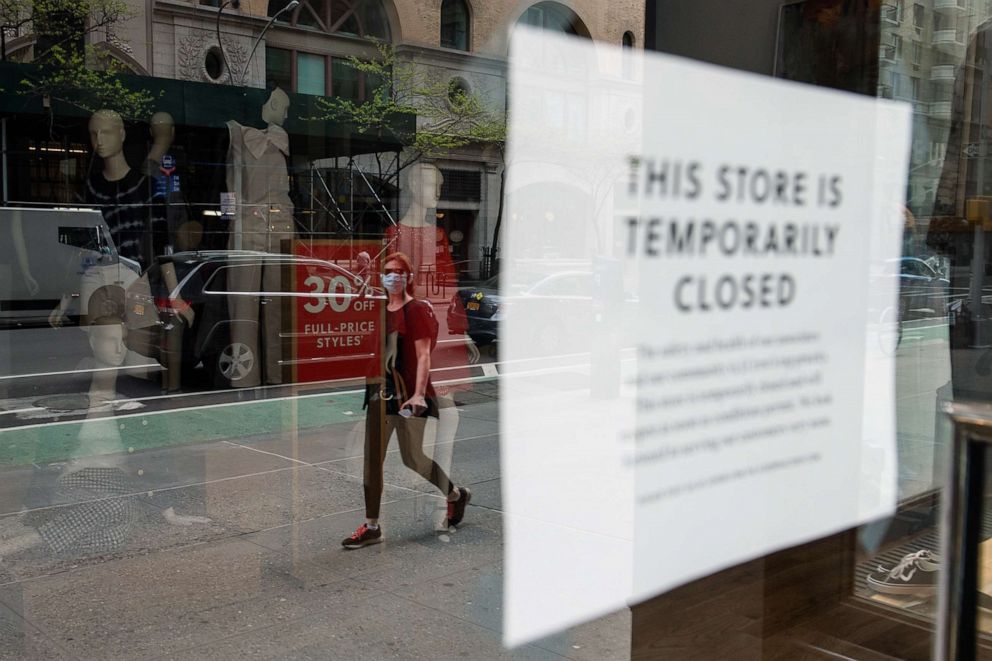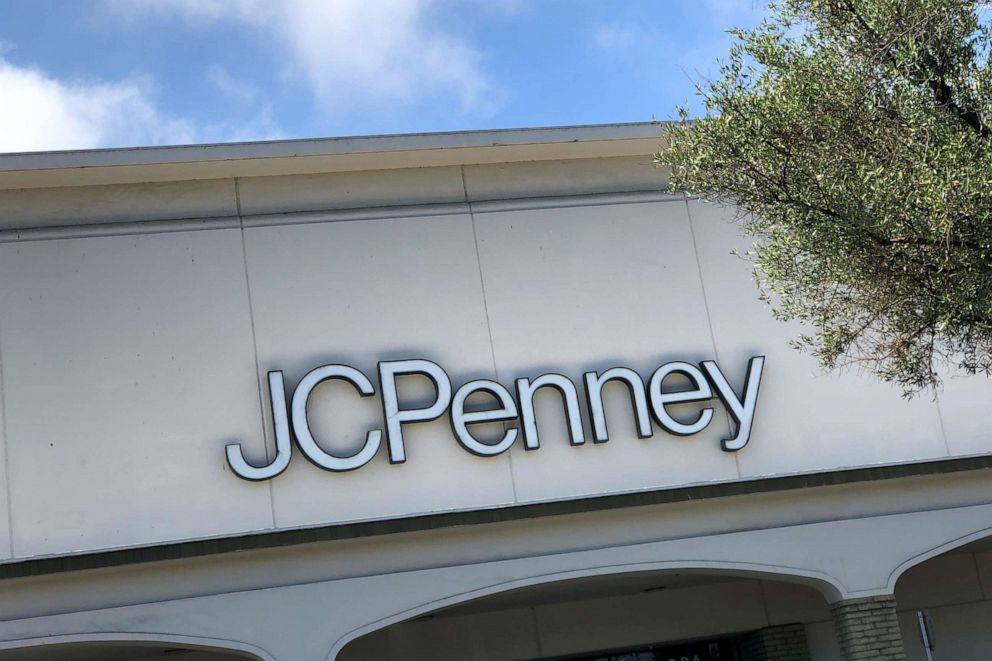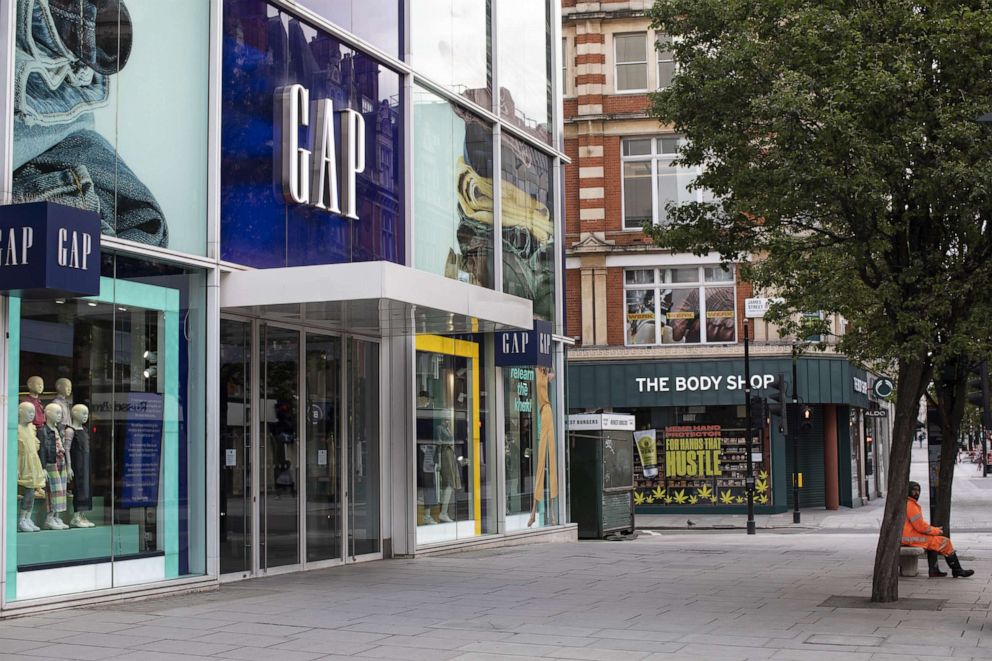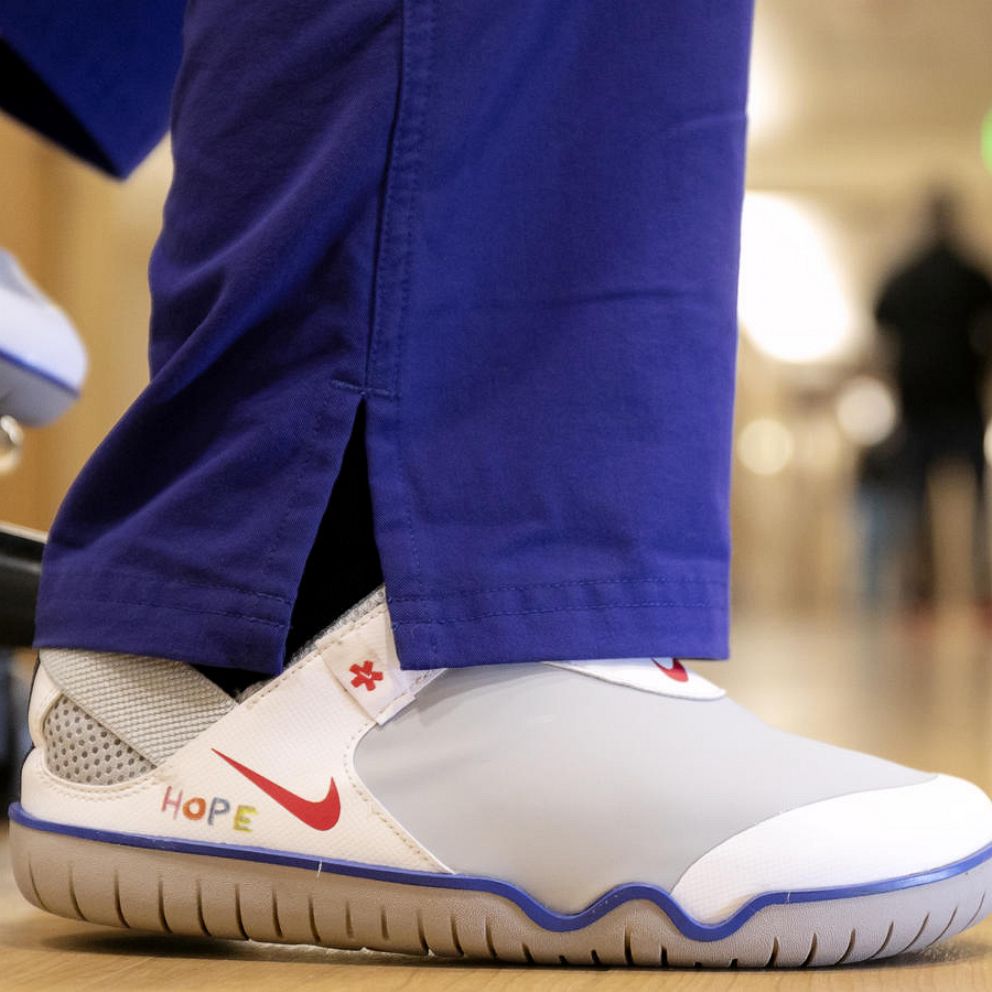Major retailers face bankruptcy and uncertain futures due to COVID-19 financial crisis
With stores shuttered, some retailers may not survive shoppers staying home.
With stores shuttered for weeks, employees furloughed and sales plummeting, many major retail stores, once shopping meccas, may not be able to survive the financial turmoil of the coronavirus pandemic.
Clothing chain J. Crew filed for Chapter 11 bankruptcy on Monday, the first major retailer to fall victim to the pandemic's economic fallout.
With the popularity of online shopping over the past decade, these retail giants were already struggling with declining sales. The pandemic further exacerbated preexisting woes. Retailers such as J.C. Penney, Neiman Marcus and Lord & Taylor are also reportedly considering filing.
"J. Crew's bankruptcy will be the first in a wave of defaults among retailers with weak balance sheets," said Raya Sokolyanska, vice president, Moody's Investors Service. "The impact of coronavirus-related disruption will be felt very acutely within the apparel retail sector, which has already undergone significant challenges over the past several years and now needs to unload stale inventory to raise cash."
Mark Cohen, director of retail studies at Columbia University, told ABC News, "J. Crew did not have a successful strategy going into the pandemic. J.C. Penney did not. Neiman Marcus did not. There are probably thousands of retailers who were struggling, if not outright failing, going into the crisis."

The J. Crew Group Inc. sought bankruptcy protection after shutting its 500 retail stores worldwide. According to a court filing by Michael J. Nicholson, the company's chief operating officer, the significant financial strain caused by COVID-19 will cost the company "$900 million in sales due primarily to store closures across all brands."
The company reached a debt restructuring support agreement with its lenders and has also secured $400 million of new money financing commitments.
"This comprehensive financial restructuring should enable our business and brands to thrive for years to come," Chief Executive Officer Jan Singer wrote in a press release on Monday.
J.C. Penney
With its stores closed nationwide during the pandemic, resulting in a sharp decline in sales, J.C. Penney shares are down nearly 80% this year, closing at $0.21 on Tuesday.
"Bankruptcy is one of many options on the table [for] the company to become a sustainable, profitable company, but at this point, no decision has been made," Brooke Buchanan, J.C. Penney's senior vice president for communications, told ABC News.

The company had been in the midst of a major turnaround before the pandemic hit. It had "successfully met or exceeded guidance on all five financial objectives for 2019, and saw comparable store sales improvement in six of eight merchandise divisions in the second half of 2019 over the first half," said Buchanan.
However, the department store has now made the "strategic decision" to skip a bond interest payment that was due April 15, said Buchanan. It has a 30-day "grace period" to continue discussions with lenders and assess its options.
Several of its stores have just reopened, with safety standards in place, and according to Buchanan, "we are seeing appetite, especially in Texas for most of them that have opened up."
Neiman Marcus Group
The privately-owned Neiman Marcus is expected to file for bankruptcy soon, according to lenders. It closed its more than 40 stores across the U.S., including Bergdorf Goodman, in mid-March. However, it is still unclear what this filing will mean for the company.
Neiman missed bond interest payments on April 15.
The Neiman Marcus Group was already struggling prior to the pandemic, with $4.8 billion of outstanding debt, according to S&P Global Ratings.
A spokesperson for the Neiman Marcus Group declined ABC News' request for comment.
Forever 21
Forever 21, the fashion retailer aimed at teens and young adults, with 534 stores across the United States, already filed for Chapter 11 bankruptcy in September 2019, a move deemed essential "to reorganize the business and reposition Forever 21," according to a statement by Linda Chang, the company's executive vice president.
The plan was to close approximately 100 of its worst-struggling stores to save the business. In February, the company was acquired by Authentic Brands, mall owner Simon Property Group and Brookfield Property Partners, but the financial mayhem caused by COVID-19 could disrupt Forever 21's restructuring plans.
In a bankruptcy court filing, Forever 21 has requested permission from the court for an extension on the deadline to further work on its reorganization.
Forever 21 did not respond to a request for comment.
Ascena Retail Group
Like many other shopping mall apparel retailers, Ascena's stores, which include Lane Bryant, Justice, Brooks Brothers, Loft and Ann Taylor, were dealing with shrinking sales long before the pandemic.
Its stock price has been steadily declining for the past several years -- its shares are down 83% year to date. In a March 30 press release, Gary Muto, chief executive officer of Ascena, wrote, "We are taking immediate steps to reduce costs and preserve cash so that we are able to resume operations when we emerge from this crisis."
However, with the substantial losses stemming from the pandemic, and further, with remote work becoming increasingly the norm, hopes of recovery may be dim, particularly for retailers who focus on office attire.
Ascena Retail Group did not immediately respond to ABC News' request for comment.
Other retailers in trouble
Other U.S retail businesses reportedly considering filings are Lord & Taylor, GNC Holdings and Sears. Also, Gap Inc., which owns Old Navy and Banana Republic, said in an SEC filing at the end of April that it is rapidly running out of cash, and is in the process of restructuring. However, the company says, "There can be no assurance that we will successfully complete these actions."
As some states loosen restrictions on their stay-at-home directives, certain malls are beginning to reopen their doors.
However, Cohen said the crisis is not likely to be over soon, "and I would submit from a retail perspective, that's easily sometime in 2022." Cohen does not foresee business truly resuming until early fall 2020.

However, he asserted, "the entire retail cycle is now broken," if not dead. Some of these businesses will not have enough available cash, or may not have paid for the merchandise they have received, nor their rent. Further, they will need funds to pay employees. There will also be an extraordinary surplus of unsold seasonal merchandise.
For many of these retailers, bankruptcy may ultimately be the most realistic option. In fact, he stated, "There is going to be an unbelievable wave, like we have never seen before," following in the footsteps of J. Crew, with companies looking for accommodations that will allow them to restructure and do business again, albeit "limping into the future like the rest of the world."
Consumers too, will be affected, asserted Cohen, and this will greatly impact purchasing behavior. Emerging from the crisis, many will have to deal with unmade rent payments, unpaid bills and potentially delinquent credit cards, and thus will not have money to spend on retail.
In addition, he said, many people have been using online shopping for the first time during the pandemic, and are "highly unlikely to revert back" to mall shopping after experiencing its efficiency, convenience and everyday low-pricing.
The e-commerce marketplace is going to expand, while the retail stores in the malls will continue to struggle, predicted Cohen, concluding, "The retail business has cooked its own goose."
ABC News' Taylor Dunn, Rebecca Jarvis, Stephanie Wash and Zunaira Zaki contributed to this report.







